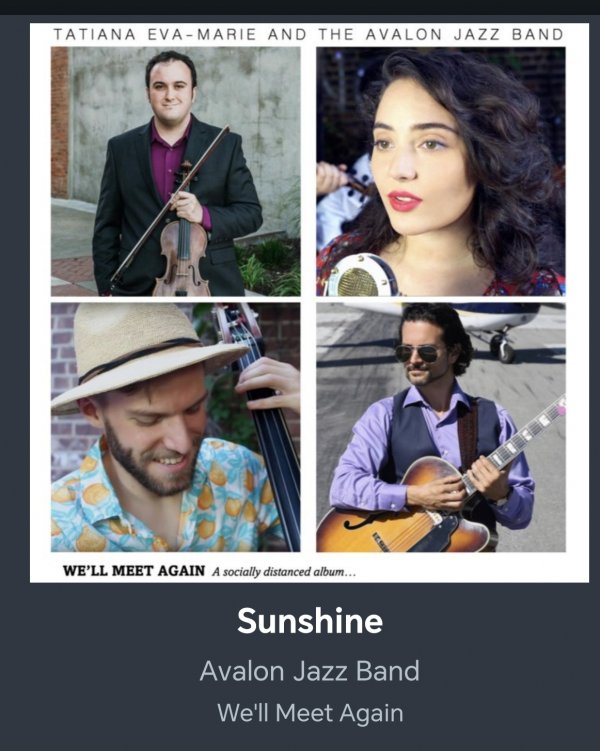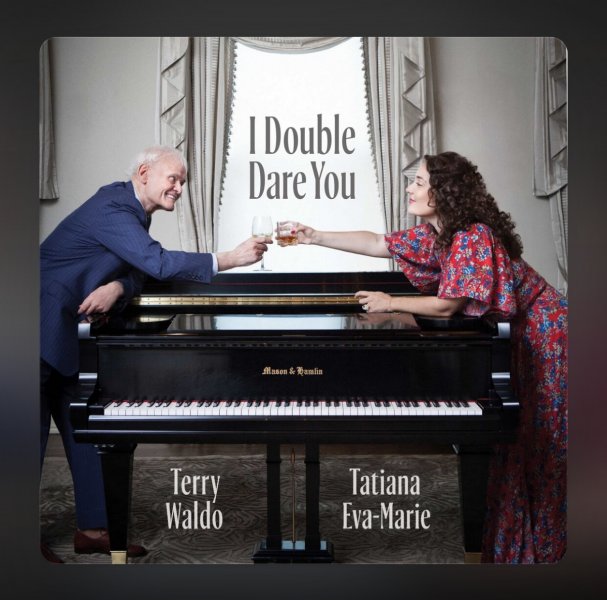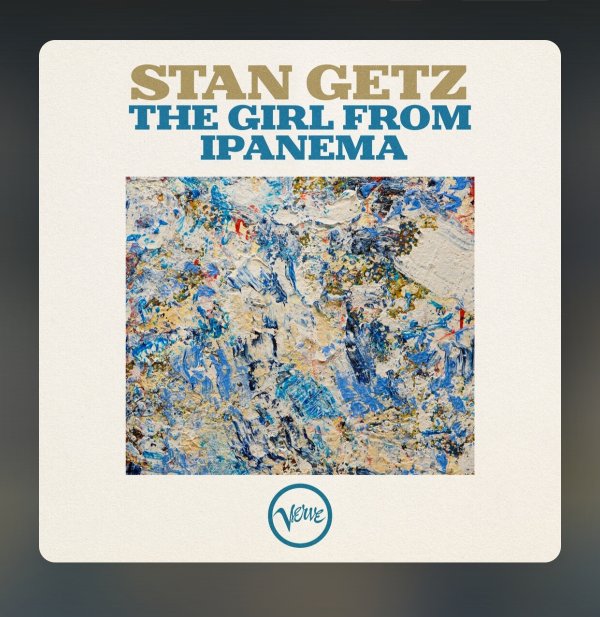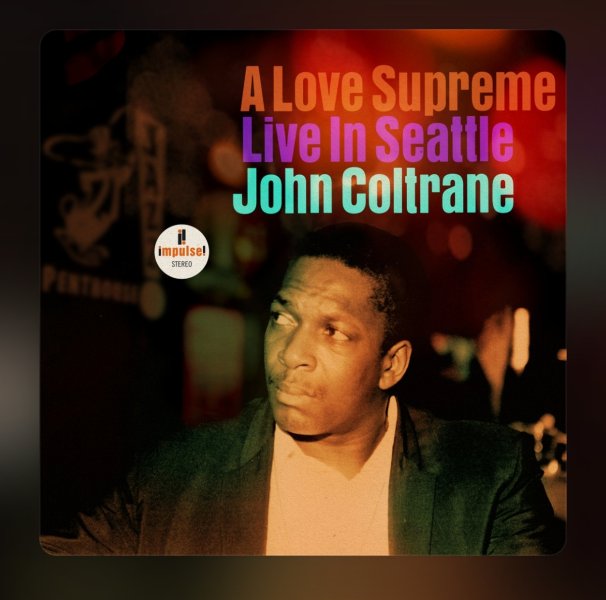? What Jazz Music Selection are you Listening to in the Now? | Analog, Digital ??????
- Thread starter NorthStar
- Start date
You are using an out of date browser. It may not display this or other websites correctly.
You should upgrade or use an alternative browser.
You should upgrade or use an alternative browser.
I have downloaded many of the Avalon bands‘ videos. I love Tatiana Eva-Marie and really wish that one of the top-flight analogue engineers (like Kevin Grey at Coherent Audio) would cut some vinyl of them (suspect would end up being one of those classic high demand records).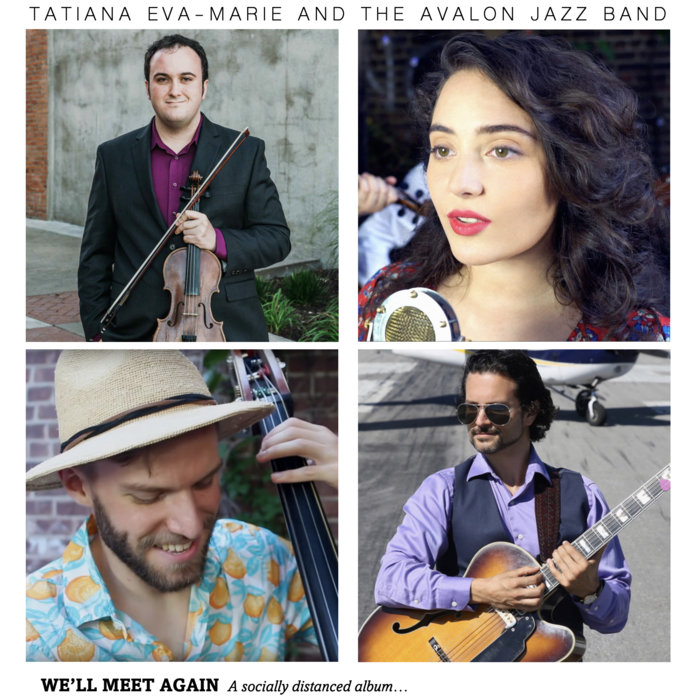
View attachment 126881
This one seems to have been recorded during lock down probably quite simply which means it sounds great!
Yeah, I only recently came across her after this video popped up on my YouTube feed :I have downloaded many of the Avalon bands‘ videos. I love Tatiana Eva-Marie and really wish that one of the top-flight analogue engineers (like Kevin Grey at Coherent Audio) would cut some vinyl of them (suspect would end up being one of those classic high demand records).
Try this one, ol' skool definitelyYeah, I only recently came across her after this video popped up on my YouTube feed :
and this:
I didn’t realise that a recording (other than Youtube) had been made. I only have a vinyl rig, no tidal, any idea if/where available on vinyl?Very nice and the album sounds good on Tidal too:
View attachment 127116
I didn’t realise that a recording (other than Youtube) had been made. I only have a vinyl rig, no tidal, any idea if/where available on vinyl?
On the topic of jazz vocalists, this video is really interesting:
Cecil McLorin Salvant comments on recordings from Bill Savory's collection: recorded broadcasts from the late 30s, early 40s.
Her comments on the singers are really insightful and I love her enthusiasm.
What strikes me listening to all these songs is how they sound so spontaneous and "fresh" while at the same time so effortlessly flawless in conception and execution.
Cecil McLorin Salvant comments on recordings from Bill Savory's collection: recorded broadcasts from the late 30s, early 40s.
Her comments on the singers are really insightful and I love her enthusiasm.
What strikes me listening to all these songs is how they sound so spontaneous and "fresh" while at the same time so effortlessly flawless in conception and execution.
Last edited:
DXD sounds fantastic to my ears. I have a few of their albums on CD as well; Up Jumped the Devil....Discovering the music of Robert Johnson part 1. A Sound Liaison 'One Mic +' Audiophile Recording. it's very well-mastered by Frans de Rond but I find Sound Liaison the DXD download superiorWhat's your view on the 16/44.1 vs the DSD/DXD playback of these sound liaison albums?
Only just discovered Lennie Tristano via this video, this album is not on digital but the album Lennie Tristano HD Remastered is.
Just played this recording from the 50’s, in mono on stereo system.
Enjoying this album right now. Pretty groovy!
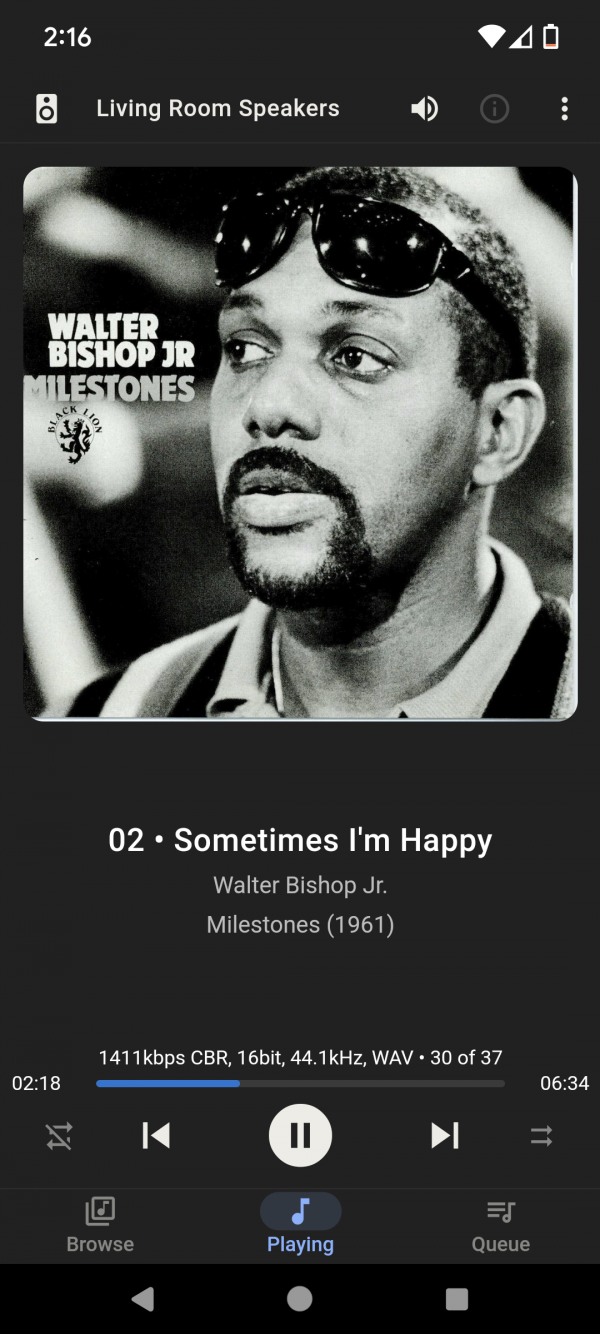
It was originally issued under the title "Speak Low"

 en.m.wikipedia.org
en.m.wikipedia.org
 open.qobuz.com
open.qobuz.com

It was originally issued under the title "Speak Low"

Speak Low (Walter Bishop Jr. album) - Wikipedia
Open Qobuz
Last edited:
Tristano was an original, brilliant genius, as were his disciples Warne Marsh and Lee Konitz.Only just discovered Lennie Tristano via this video, this album is not on digital but the album Lennie Tristano HD Remastered is.
Last night I listened to the pianist Lorraine Geller:
 en.wikipedia.org
en.wikipedia.org
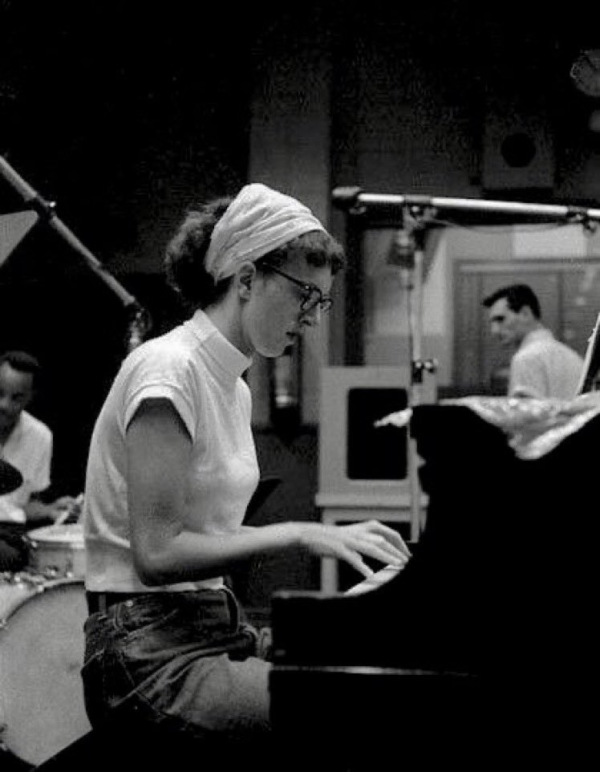
I found out about her by reading this solography by the late Jan Evensmo:
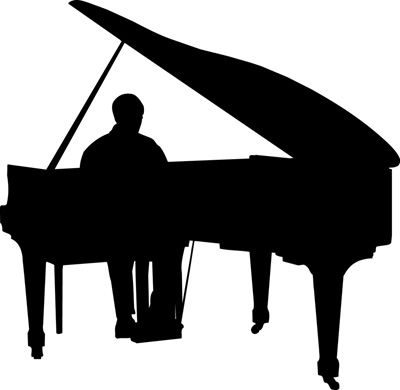
 www.jazzarcheology.com
www.jazzarcheology.com
I really enjoy her playing. She unfortunately recorded very little, having passed away at the age of 30.
These two compilation issued by Fresh Sound Records - which have some overlap - are available on most streaming services:
1) Lorraine Geller - Memorial
 open.qobuz.com
open.qobuz.com

 www.freshsoundrecords.com
www.freshsoundrecords.com
2) Herb & Lorraine Geller: Two of a Kind · Complete Recordings 1954-1955
 open.qobuz.com
open.qobuz.com

 www.freshsoundrecords.com
www.freshsoundrecords.com
Here are Evensmo's comments on a trio session from 1954 (contained in the first compilation), with one of the tracks below:
"When stated above that her most important sessions were made with her husband, there is one exception, this trio session! The CD liner notes states that it was not intended to be a recording but the first rehearsal of a new group along with some demo material (ref. Herb Geller). The music was released on Dot Records four years after her death. There is so much freedom in her music here, she has a true confidence in what she is doing, with firm roots in the bebop tradition, as evident in “Clash …” or “Mystery …” or “… X”, and she treats some evergreens with great ease and personality. Should a highlight needed to be pointed out, the beautiful slow “… Your Eyes” ranks high! A session like this is enough to make the performer candidate for a solography!!"
Here is a good article on her:
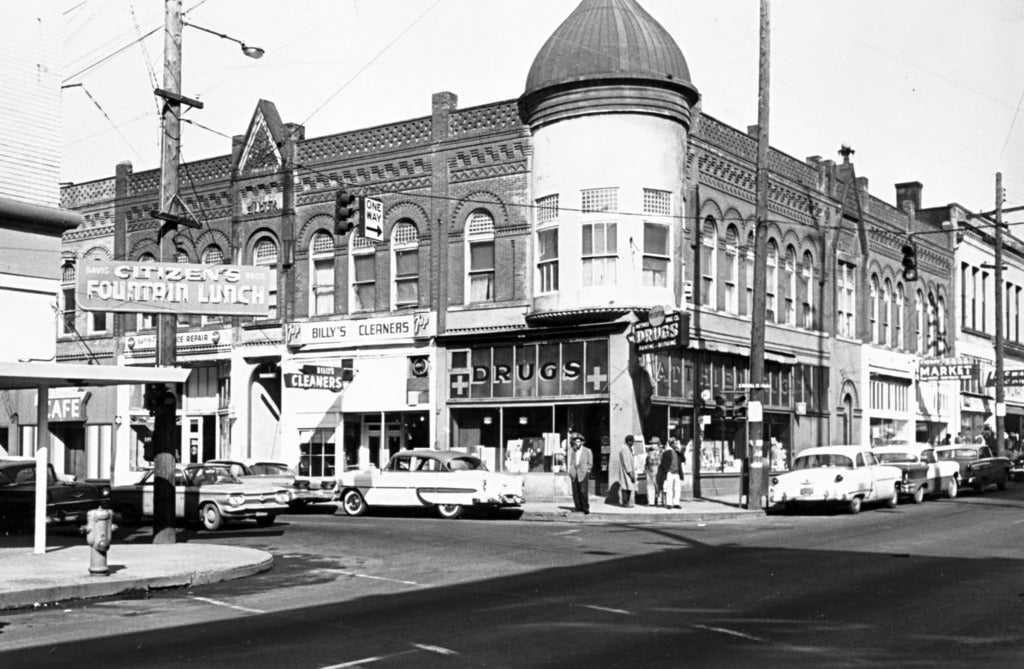
 sites.lsa.umich.edu
sites.lsa.umich.edu
Lorraine Geller - Wikipedia

I found out about her by reading this solography by the late Jan Evensmo:

Lorraine Geller - JazzArcheology.com
Lorraine Geller (1928 – 1958) was an excellent jazz piano artist, one of the best beboppers on the West Coast, but died suddenly from heart failure, so young...
I really enjoy her playing. She unfortunately recorded very little, having passed away at the age of 30.
These two compilation issued by Fresh Sound Records - which have some overlap - are available on most streaming services:
1) Lorraine Geller - Memorial
Open Qobuz

Lorraine Geller - Memorial - Blue Sounds
Buy Memorial by Lorraine Geller on Blue Sounds Store. Released by Fresh Sound Records.
2) Herb & Lorraine Geller: Two of a Kind · Complete Recordings 1954-1955
Open Qobuz

Herb Geller & Lorraine Geller - Herb & Lorraine Geller: Two of a Kind · Complete Recordings 1954-1955 (2-CD) - Blue Sounds
Buy Herb & Lorraine Geller: Two of a Kind · Complete Recordings 1954-1955 (2-CD) by Herb Geller & Lorraine Geller on Blue Sounds Store. Released by Fresh Sound Records.
Here are Evensmo's comments on a trio session from 1954 (contained in the first compilation), with one of the tracks below:
"When stated above that her most important sessions were made with her husband, there is one exception, this trio session! The CD liner notes states that it was not intended to be a recording but the first rehearsal of a new group along with some demo material (ref. Herb Geller). The music was released on Dot Records four years after her death. There is so much freedom in her music here, she has a true confidence in what she is doing, with firm roots in the bebop tradition, as evident in “Clash …” or “Mystery …” or “… X”, and she treats some evergreens with great ease and personality. Should a highlight needed to be pointed out, the beautiful slow “… Your Eyes” ranks high! A session like this is enough to make the performer candidate for a solography!!"
Here is a good article on her:

At the Piano: Remembering Lorraine Geller and Portland’s Jazz History
Recorded in Los Angeles in 1954, At the Piano came out in 1959, a year after Lorraine died. Jazz trios are a dime a dozen, and piano trio albums can sound so much alike that they seem interchangeab…
 sites.lsa.umich.edu
sites.lsa.umich.edu
Last edited:
Here is another mono recording that I like, this one is a repressing by Analogue Productions of an earlier Columbia pressing, Ellington's "Masterpieces".
Sounds good.
The digital versions, by the way, are (quasi) mono as well.
Here are Eddie Lambert's comments (from his book "Duke Ellington: A listener's Guide") on Mood Indigo - they are useful if you want to identify the various soloists:
"Masterpieces By Ellington opens with Mood Indigo. This has as its centerpiece three vocal choruses by Yvonne Lanauze which are not particularly outstanding. They are the weakest part of the performance, but so perfectly set by Ellington that they provide an ideal nucleus to the structure. Prior to the vocal, we have a theme statement by one of those variants of the traditional Mood Indigo trio voicing which Ellington liked to use: on this occasion, two muted trombones bones and bass clarinet make up the trio. From this time onwards, Russell Procope started to emerge as an Ellington clarinet soloist, and here he plays what used to be Barney Bigard's chorus, using a thick, broad tone and a blues-impregnated melodic style. He is beautifully backed by Ellington who is at his most brilliant as a keyboard accompanist throughout these performances. Procope goes on to play a low-register obbligato against the brass in the next section. This passage is scored for muted trumpets, and with Ellington's shifting harmonies some wonderful sounds are heard. The next two choruses are given over to Johnny Hodges, again with brilliant piano backing; this solo is a minor masterpiece in itself. The full band is used for the first time in the sixth chorus, which has superb lead trumpet from Baker and constantly moving and changing counterpoint among saxes, trumpets, and trombones, scored with breathtaking beauty and originality. In the reeds, the lead is changed about from clarinet to alto to tenor to baritone, with Carney's deep sound creating a magnificent basis for the multi structured writing. The greatest possible contrast is heard in the next chorus, given over to piano variations, calm in spirit with beautiful chording and balanced, inventive melodic structures. The band's newest soloist, Gonsalves, takes the bulk of the following chorus in a rich-toned, highly rhapsodic solo played against a brooding orchestral backdrop, drop, but Ellington himself has the last four bars to set up the vocal entry. The first vocal chorus is backed by piano and rhythm only, the second by powerful plungered brass, and the third by sultry, stilled saxophone harmonies. The contrast as Glenn's plunger-muted trombone takes over at the conclusion of Lanauze's vocal is dramatic. One chord from Ellington immediately changes the mood, and Glenn's two choruses, again with trenchant support from the pianist, are among his best on record. This trombone solo is followed by a long ensemble section in 3/4 time during which Nance's trumpet is briefly heard. Duke's piano then leads back to the recapitulation of the theme by two trombones and bass clarinet, but this time, improvised countermelodies by Procope and Ellington create a rich three-part counterpoint with the trio as lead voice. This is followed by a brief, incisive piano coda. This Mood Indigo must be reckoned among the very finest of all Ellington arrangements."
Similar threads
- Replies
- 46
- Views
- 2K
- Replies
- 4
- Views
- 594
- Sticky
- Replies
- 55
- Views
- 9K
- Replies
- 14
- Views
- 3K
- Replies
- 1
- Views
- 495
| Steve Williams Site Founder | Site Owner | Administrator | Ron Resnick Site Owner | Administrator | Julian (The Fixer) Website Build | Marketing Managersing |



